
Social and Emotional Learning (SEL)
Maximizing the potential of all students and staff to become responsible, caring and reflective members of our diverse society.
Social and emotional learning is a partnership among families, schools, and the community. Intentionally teaching SEL skills at school supports the work that begins and continues at home. FCPS support for SEL is aligned with Virginia Department of Education (VDOE) guidance. The VDOE defines social emotional learning as:
“The process through which all young people and adults acquire and apply the knowledge, skills, and attitudes to develop healthy identities, manage emotions and achieve personal and collective goals, feel and show empathy for others, establish and maintain supportive relationships, and make responsible and caring decisions.”
Benefits of SEL
Research shows us that when SEL is part of a student’s regular educational experience, students experience positive outcomes such as:
- Improved academic performance
- Increased college and career readiness
- Strengthened positive relationships
- Enhanced sense of well-being
- Increased sense of safety and support
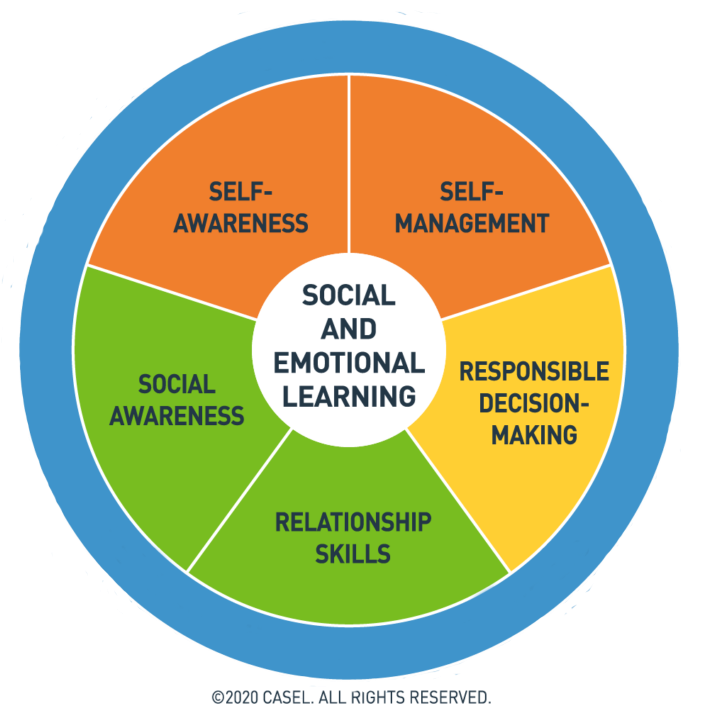
SEL Skills at Home and at School
SEL is made up of five areas of knowledge and skill: self-awareness, self-management, responsible decision making, relationship skills and social awareness. These skills are important for collaboration and perspective taking. They also help students manage their feelings, address challenges, and reach their goals. (CASEL, 2020)
Select a skill below to learn more about how supportive adults at home and school can help to develop these skills.
Self Awareness is defined as the ability to understand one’s own emotions, thoughts, and values and how they influence behavior across contexts. This includes identifying emotions, accurate self perception, recognizing strengths, self-confidence and self-efficacy.
As mentioned in this PBS Video on Self Awareness, students can practice self-awareness skills at home and at school with supportive adults who can help them:
- Build a vocabulary to include words that describe emotions
- Practice labeling how they feel in different situations
- Learn how to respond to different feelings
- Develop a growth mindset
Self management is defined as the ability to manage one’s emotions, thoughts, and behaviors effectively in different situations and to achieve goals and aspirations. This includes building skills to control impulses, manage stress, self-discipline, self-motivation, goal-setting and organizational skills.
As mentioned in this PBS Video on Self Management, students can practice self-management skills at home and at school with supportive adults who can help them:
- Recognize their emotions
- Identify and use a strategy to reduce stress
- Solve problems on their own
- Be a part of decision making in the house and/or classroom
Social awareness is defined by the ability to understand the perspectives of and empathize with others, including those from diverse backgrounds, cultures, and contexts. This includes perspective taking, empathy, appreciating diversity and respect for others.
As mentioned in this PBS Video on Social-Awareness, students can practice social-awareness at home and at school with supportive adults who can help them:
- Think about how others might feel in a certain situation
- Read body language
- Appreciate diversity
- Show respect for others
Relationship skills is defined as the ability to establish and maintain healthy and supportive relationships and to effectively navigate settings with diverse individuals and groups. This includes communication, social engagement and teamwork.
As mentioned in this PBS Video on Relationship Skills, students can practice relationship skills at home and at school with supportive adults who can help them:
- Work in pairs or small groups
- Play games with other children and/or adults
- Communicate clearly with others
- Find other people to connect with
Responsible decision-making is defined as the ability to make caring and constructive choices about personal behavior and social interactions across diverse situations. This includes identifying problems, analyzing situations, solving problems, evaluating, reflecting and ethical-responsibility.
As mentioned in this PBS Video on Responsible Decision-Making, students can practice relationship skills at home and at school with supportive adults who can help them:
- Think through all the parts of a problem in order to understand it
- Let them safely handle natural consequences
- By having conversations with them after they made a choice
- Reflect on different perspectives
Required SEL Practices in FCPS
Morning Meeting, Closing Circle, and Responsive Advisory Meeting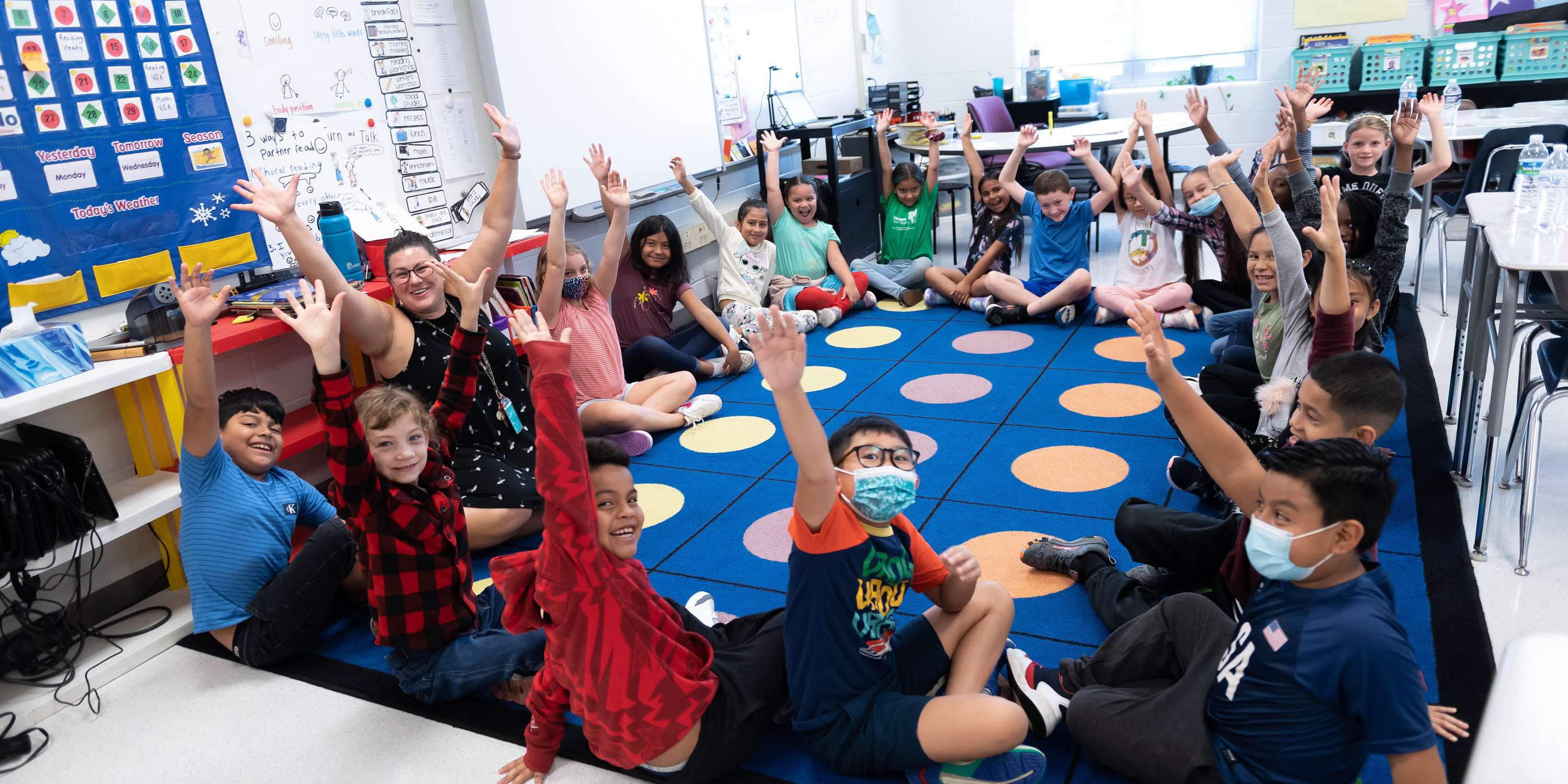
All FCPS schools are required to implement the following practices, drawn from Responsive Classroom’s evidence-based SEL model:
- Morning Meeting and Closing Circles in elementary schools
- Responsive Advisory Meetings in middle and high school
The Morning Meeting is an engaging way to start each day, build a strong sense of community, and set children up for success socially and academically.
The Responsive Advisory Meeting (RAM) offers a time for building meaningful connections and developing respectful and trusting relationships. It helps students to know they belong, feel significant, and apply key academic and social skills.
Want to learn more about resources used to support SEL skill building in FCPS? Visit our Social and Emotional Learning (SEL) Instructional Materials webpage.
3 Signature Practices
The teaching strategies below can be used to help students develop SEL skills like critical thinking and collaboration during all class periods.
Inclusive welcome at the start of each class period creates a predictable routine for students and allows an opportunity to build community
Engaging strategies throughout class provide opportunities for students to interact and reflect
Intentional close ends class reflecting on learning, identifying next steps, or making connections
Want to learn more about these practices? View this Collaborative for Academic, Social, and Emotional Learning (CASEL) document. CASEL is an organization that promotes SEL in public education.
SEL Screener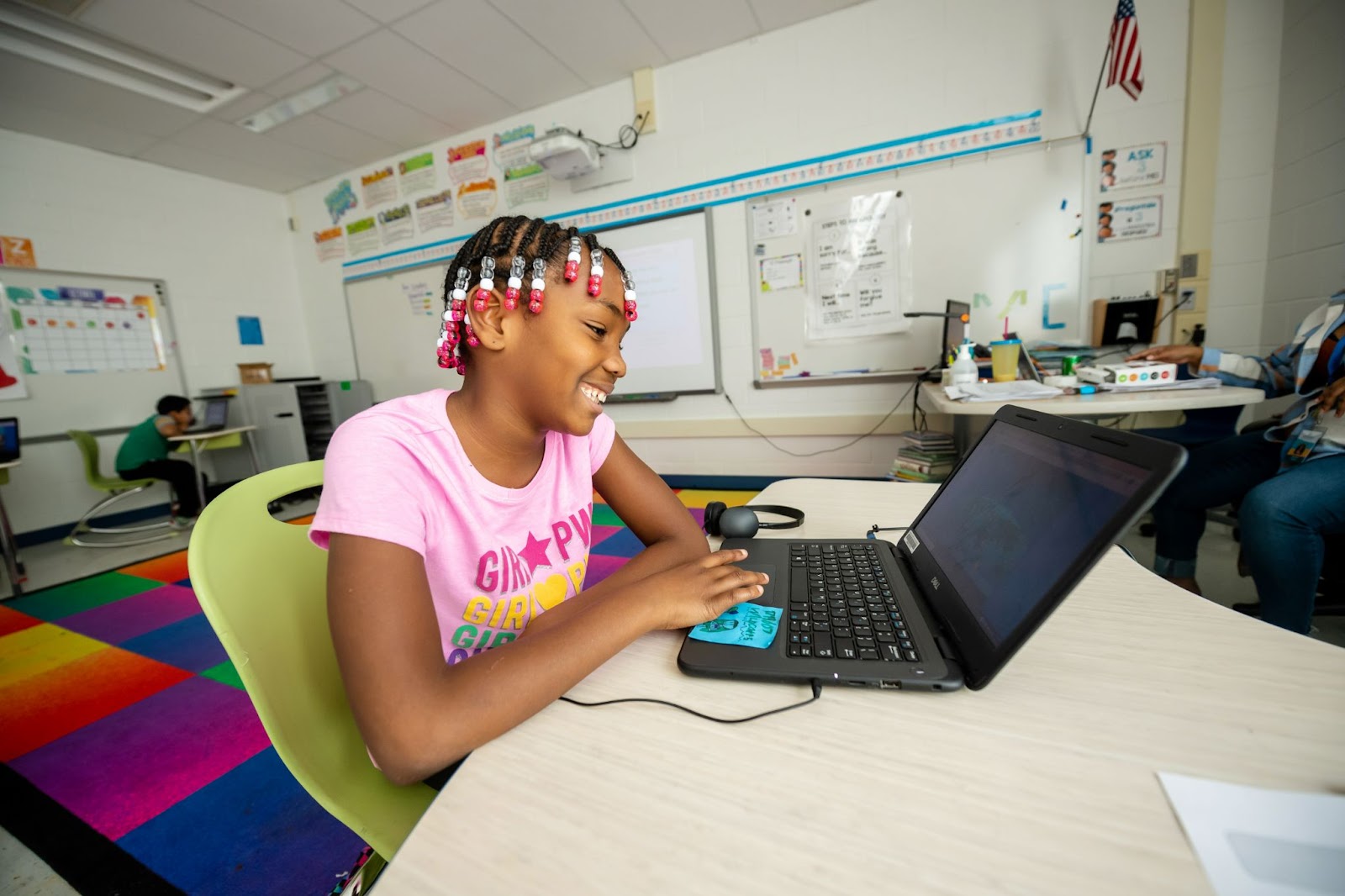
In FCPS, students use a tool called a screener to think about their own SEL skills and experiences at school. This screener helps them evaluate how well their school community makes them feel valued, included, and supported.
Want to learn more about the screener? Visit our SEL Screener webpage.
SEL Supports FCPS Values
School-wide approaches to SEL support the FCPS Strategic Plan and FCPS Educational Equity Policy in its focus on academic growth and excellence as well as in ensuring that students feel safe, supported, included, and empowered. SEL skills provide the foundation students need to become successful academically, socially and emotionally. It is deeply intertwined with Portrait of a Graduate attributes and supports long term professional and personal outcomes.
Additional Resources
- CASEL’s SEL for Parents Video
The video provides information about SEL in schools and insights on SEL in parenting practices in order to support children's social and emotional learning - VDOE: Social Emotional Wellness Video Quick Guides
These videos, in English and Spanish, provide information about SEL for parents, caregivers and staff and are focused on supporting students with disabilities, military connected learners, English learners and early learners
Related Pages
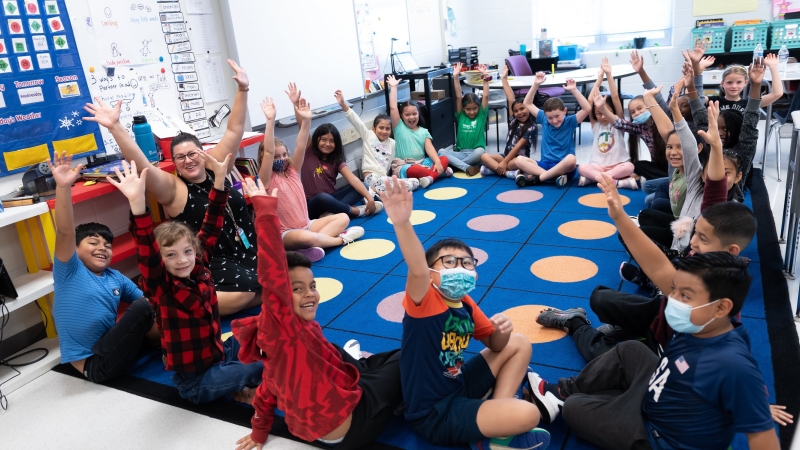
Social and Emotional Learning (SEL) Instructional Materials
An overview of the key practices and resources to support SEL skill development.
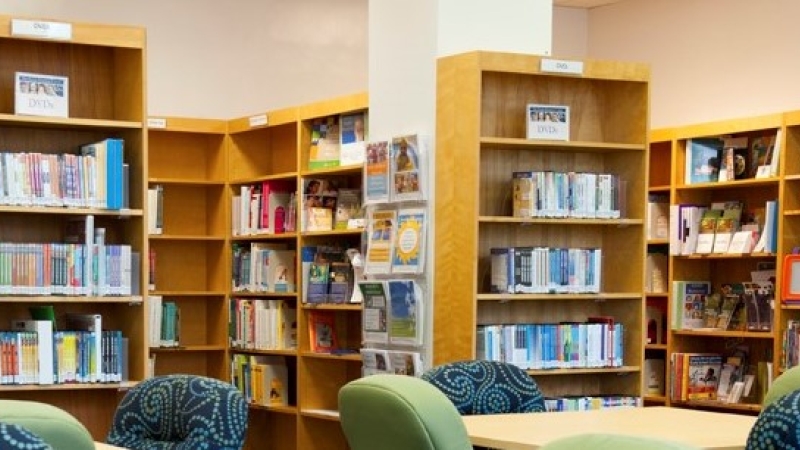
Family Resource Center
The Family Resource Center (FRC) offers free webinars, consultations, a lending library, and resources to help adults support the success of all students, including those with learning challenges, special needs, and disabilities. The center was formerly named the Parent Resource Center.
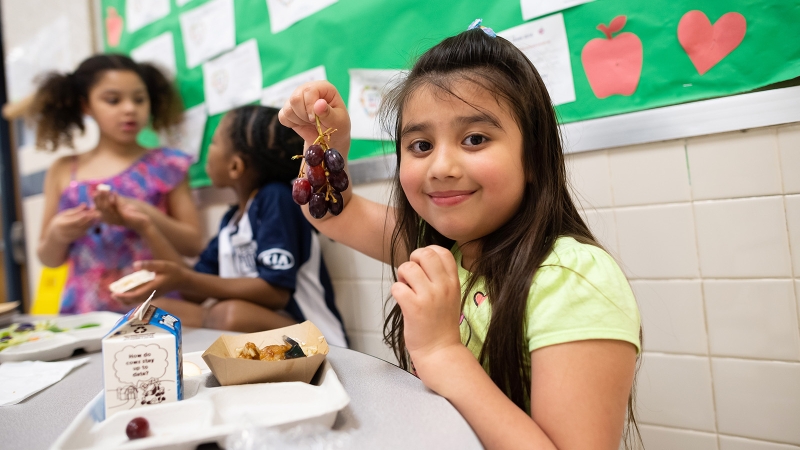
Student Safety and Wellness
From mental health resources to bullying prevention and food and nutrition services, FCPS is committed to supporting more than just a child's education. Includes information on mental health resources, school health services, our wellness policy, and student safety.